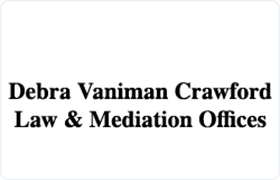Spreckels Divorce & Family Law Lawyer, California
Sponsored Law Firm
-
 x
x

Click For More Info:
-
Debra Vaniman Crawford, Law & Mediation Offices
380 Alvarado Street, Suite 202, Monterey, CA 93940» view mapDivorce Over 30 Years Experience
We are a full service law office -- from document preparation to full representation.
800-843-3590
Russell Christian Scott
Lawsuit & Dispute, Family Law, Divorce & Family Law, Criminal
Status: In Good Standing Licensed: 17 Years
Michael Gihei Adura Miranda
Motor Vehicle, Immigration, Divorce & Family Law, Bankruptcy & Debt
Status: In Good Standing Licensed: 17 Years
Sandra Lopez
Intellectual Property, Family Law, Divorce & Family Law
Status: In Good Standing Licensed: 23 Years
Billie Chrystine French
Family Law, Divorce & Family Law, Elder Law
Status: In Good Standing Licensed: 39 Years
Sheri Lynn Perlman
Divorce & Family Law, Divorce & Family Law
Status: In Good Standing Licensed: 47 Years
Bruce Julian Kitchin
Contract, Personal Injury, Family Law, Criminal, Commercial Real Estate
Status: In Good Standing Licensed: 49 Years
 Debra Vaniman Crawford Monterey, CA
Debra Vaniman Crawford Monterey, CA AboutDebra Vaniman Crawford, Law & Mediation Offices
AboutDebra Vaniman Crawford, Law & Mediation Offices Practice AreasExpertise
Practice AreasExpertise
